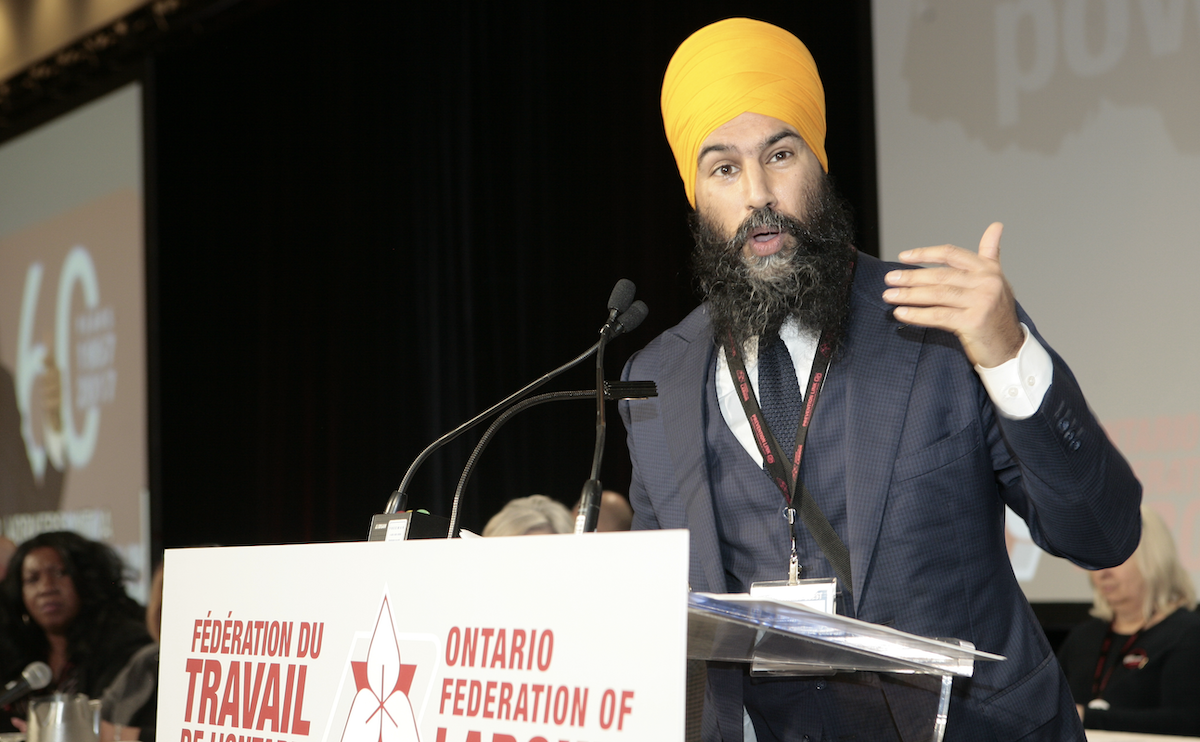Two of Canada’s left-of-center parties have entered an agreement that will prop up the government in exchange for an expansion of public services. However, noticeably absent from their deal is one of the parties’ push to decriminalize drugs.
The ruling Liberal Party under Prime Minister Justin Trudeau and the social democratic NDP (New Democratic Party) entered into a supply and confidence agreement on March 22. It will see the latter party support the former in parliamentary votes until the next federal election in 2025. The Liberals have a minority government, with 159 of 338 seats. But with the NDP’s 25 seats supporting them, the Liberals won’t be ousted by a vote of no confidence. In return, the Liberals are implementing a series of policies put forward by the further-left NDP, such as national Pharmacare and dental plans, and expanded affordable housing efforts, among others.
“As announced yesterday, a supply and confidence agreement has been reached by the Liberal Party of Canada and the New Democratic Party in Parliament. We have agreed to work together to put the needs of Canadians first, including by expanding and protecting our healthcare,” the Office of the Minister of Mental Health and Addictions and Associate Minister of Health wrote in an email to Filter.
However, in February, NDP MP Gord Johns put forward a private members bill which, if passed, would decriminalize drug possession nationwide. As Filter previously reported, this bill has won some support from other politicians. It is currently before the House and MPs will continue to debate it.
NDP leader Jagmeet Singh has publicly supported the bill. However, no mention of it appears in the agreement between the two parties.
Members of the harm reduction community are also supportive—while raising some concerns, including thresholds for permitted quantities of drugs, which are not currently defined. Additionally, “We certainly noticed there was nothing in there about responding to the drug toxicity crisis. I think that’s a missed opportunity,” Donald MacPherson, executive director of the Canadian Drug Policy Coalition, told Filter.
NDP leader Jagmeet Singh has publicly supported the bill. However, no mention of it appears in the agreement between the two parties. Trudeau has previously described decriminalization as “no silver bullet” for the overdose crisis.
In the written statement, the Office of the Minister of Mental Health and Addictions and Associate Minister of Health noted that the government plans on building on the approach it’s had since 2017, which includes a recent CA$700 million in investments for community-led harm reduction projects, and treatment and prevention projects. The statement also noted that Health Canada is currently reviewing several requests for exceptions that would allow provinces or cities—like Vancouver and British Columbia—to decriminalize.
MacPherson noted that both parties, in some ways, have worked towards drug policy reform in Canada—the Liberals brought forward safe supply, for instance. Further, he said that the current agreement is designed around some “big budget” commitments, such as Pharmacare, but that it’s possible the two parties could also make progress in other areas.
“It would be very, very sad if … those two parties working together could not proceed with both of those issues [decriminalization and safe supply] in a significant way,” he said.
Johns holds similar hope that the partnership could extend beyond the issues specified in the agreement. “There are many, many items that aren’t on the list that we want to have a conversation around,” he told Filter.
“I need Liberal support to get this bill passed.”
Johns said that some of the agreement’s existing provisions may help people who use drugs in other ways. It mentions that the federal government will work with the territories and provinces to figure out the best ways to improve health care for Canadians, including by increasing mental health support. Johns added that dental health issues can also sometimes act as barriers to employment or accessing housing. “There [are] components of this agreement that certainly cross over,” he said. “There are many things in this agreement that we can point to that will support people that need support—whether that be harm reduction or mental health.”
Johns said he will continue to work to build support for the bill, particularly when visiting Liberal electoral districts. “I need Liberal support to get this bill passed,” he said. “The Conservatives have been unequivocally clear they believe that treatment is the only option … I am really focused on putting as much pressure on the Liberal government as possible.”
Photograph of Jagmeet Singh in 2017 by Ontario Federation of Labour Communications Department via Flickr/Creative Commons 2.0





Show Comments